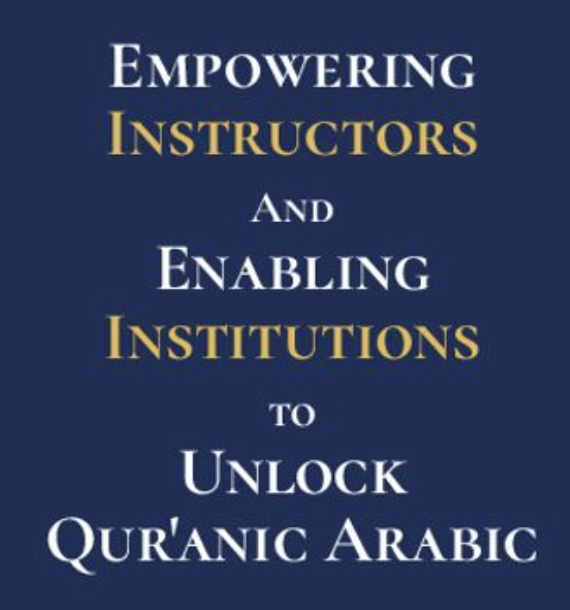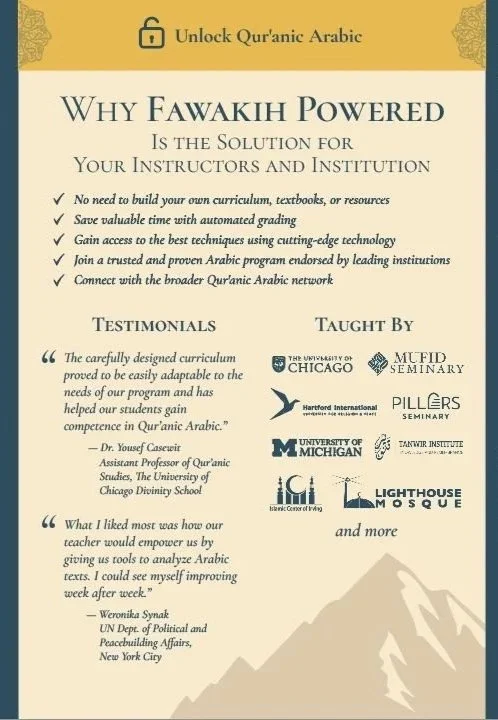We envision a future in which understanding the Quran in Arabic is common for all those who seek learning and understanding its content. We believe unlocking the Quran and its meaning can be best done with a deeper connection with its language.
In order to do this, Fawakih develops curriculum products and courses to allow students to take learning journeys to acquire the language skills they need to empower their engagement of the Quran. Since the need far surpasses our capacity to serve students, and though we constantly aim to remain in touch with and cognizant of the needs of our diverse group of students, we believe that local and learning communities, institutions, instructors, and ultimately students themselves know their circumstances and needs better than we do.
Thus the Powered program is rooted in the fact that we do not know your community better than you. In that regard, you know best how to adapt the Fawakih system to meet your needs.
“In West Africa Yam is not grown with seeds, rather through cutting off and replanting part of a yam tree. Thus the trees currently present are the Yam trees of 12k years ago. The various varieties of these trees emerge from adaptations coming from the unique environmental factors. ”
Likewise, when the Fawakih curriculum is planted in various community environments, the Fawakih Powered hosts will make certain adaptations to enhance the student experience.
We rely on you do to that! We provide “farmers” the Fawakih seeds and share our experience regarding the environment, planting method, and the care required for germination into healthy saplings and eventually fruit-bearing orchards! Though this requires hard work and a regular routine of watering, the results are worth the effort!




